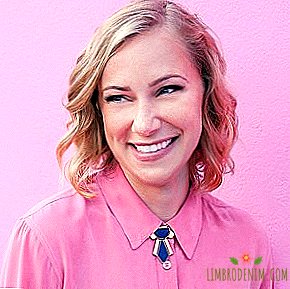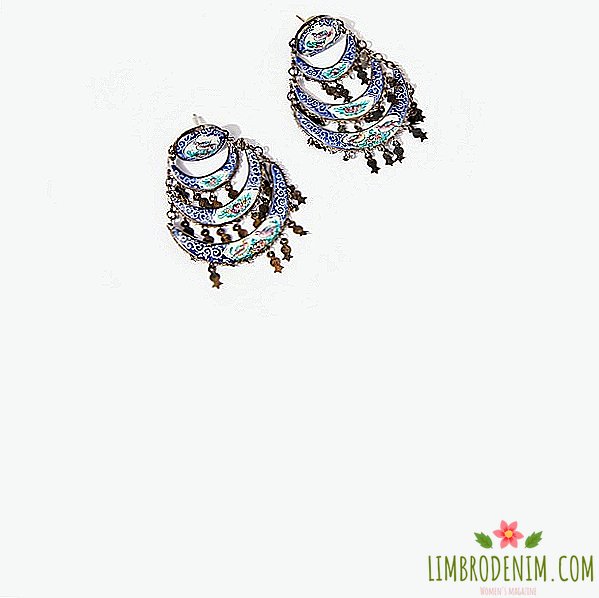Hands off: How women of African descent defend their hair

margarita virova
Over the past month on politically incorrect retouching At least two big stars complained in gloss. Evening Standard "cut off" from the photo avant-garde weaving on the head of Solange Knowles, and in the British Grazia decided to embellish the hair of Lupita Nyong'o somewhat. We describe how women of African descent revolted against Eurocentric beauty standards and why this statement means more than the right to naturalness.
Under the headings with the words "natural hair" there are not only lists of styling methods, but also statements about how important it is not to succumb to the parameters imposed by society.
Last spring, Twitter was worried about a photograph of Michelle Obama, who was seen without carefully straightened hair for the first time in eight years of public life: before that April day, the wife of the President of the United States appeared in public with European styling in the style of Jacqueline Kennedy. Despite the fact that the photo was taken on vacation and his appearance in the media is more a coincidence than a planned action, such an outlet for a woman significant to America was welcomed with great enthusiasm. It may be difficult for people outside the US to understand why “just a hairstyle” causes so much discussion. But women of African descent have a long history of relationships with their hair. Or, to be more precise, the relations of society with the features of their appearance as a whole.
Fact - rare celebrities of African descent up to this decade did not hide the natural look of their hair. A prominent place in show business today also requires celebrity to meet European standards of appearance: it seems that not a single year passes without the traditional case when photo editors in magazines designed for wide circulation, trying to do “better”, lighten the skin on photos of actresses and singers , correct their facial features and figures. As an example of beauty, African-American women offer Naomi Campbell, Taira Banks or Beyonce - and we often see them with smooth, straight hair. It is not surprising that by now a real struggle for naturalness has unfolded in the beauty communities on the Internet. Under the headings with the words "natural hair" there are not only lists of styling methods, but also statements about how important it is not to succumb to the parameters imposed by society.
Genetic combinations, of course, can be different, but in most cases it is difficult for women of African descent to come close to European requirements, which imply a luxurious, flowing shovel. African hair does not grow to the waist and usually reaches a maximum length of twenty centimeters, does not lend itself to Hollywood styling and is more prone to loss. It is no secret that most black women resort to wigs or special extensions, thanks to which artificial strands securely fasten to the weave. Others choose dreadlocks, boxing braids, or stubborn strands every day with a rectifier. Anyway, the idea that African-Americans definitely need to bring their hair into a kind of "normal" look is so vivid that many of us do not even know what their untouched hair looks like.
In the 1960s, the canonical Afro hairstyle in the US, with which we still habitually associate the African American community, literally became a symbol of political resistance: many members of the left-wing radical organization Black Panthers wore this. It was an important subcultural difference: along with the struggle for the right to work, education, and in general - the voice, the members of the party literally called for the conquest of the right to beauty.
African Americans who don’t hide their hair are too often treated as curious aliens.
The “indomitable” hairstyle was a bright symbol and, over time, became an attribute of various liberation movements of the African-American population. Natural hair has become associated with "black feminism." Even in the Soviet Union, the image of a human rights activist and political prisoner Angela Davis crashed into the memory of many: the African prophet became a universal companion of the new wave of emancipation. The middle of the 20th century is still the time when such appearance was considered to be "defective" by all signs. We still see the echoes of this performance when the earning millions of singers and models have to conform to a standard born outside their own culture.
Against this background, an entire trend was born among celebrities, which is noted by many publications: without European styling, Viola Davis, Gabriel Union, Susan Kelechi Watson and Zendaya appeared on pompous red tracks and covers. The most prominent preacher of this movement is Solange: in the same interview under the ill-fated edited cover she described the braids and weaves as an important part of African American culture. This is not just a pathetic lunge: dreadlocks and scythes really came into modern pop from afro-culture. Moreover, they joined it so organically that in some cases they seriously talk about cultural appropriation.
This was the case, for example, when New York Fashion Week with fun colored dreadlocks at the Marc Jacobs show was mostly white-skinned. This broad gesture from the fashion industry seems not so friendly, if you apply it to the reality in which women are fired for refusing European styling - referring to the fact that it looks "unprofessional." Last year, the media proclaimed a new fashion for braids, which the girls from the Kardashian-Jenner clan allegedly asked, which caused the fair anger of African-American women: it was as if Kendall Jenner didn’t have braids before the next experimental haircut.
Yes, probably, after much more serious and complex problems of American racism, indignation at the theft of cultural identity from outside seems frivolous and ridiculous - but respect and empathy, following the simplest logic, should be observed at the microclimate level. African Americans who do not hide their hair, too often come across as curious aliens: a kindly request to touch the hair has turned into a separate cultural code, transparently demonstrating that people continue to divide into their own and others. This week, the satirical game Hair Nah, in which the heroine of African descent has to fight off the hands stretching to her hair, has become viral - yes, this is so burning problem. Curiosity, of course, is not punishable, but it is often accompanied by trespassing and from trying to get acquainted with something new turns into another declaration of otherness. According to the owners of African hairstyles, this is at least unpleasant.
Today, women, simply going out into the street without preliminary manipulation of their own appearance, demonstrate the same solidarity: this time in the face of aggressive advertising that controls the standards of beauty and social inertia. It is strange to live in a world where just being yourself is already a statement, but perhaps this stage is necessary before finally to relax, without being on opposite sides of the barricades.
Cover: Eleven paris




